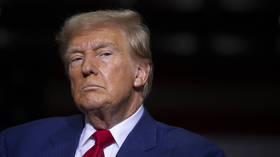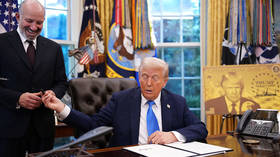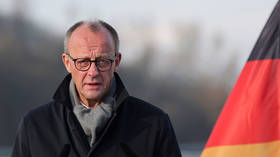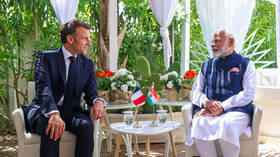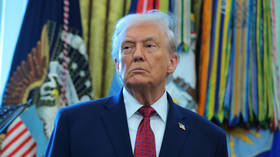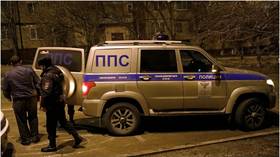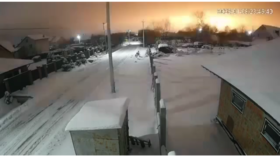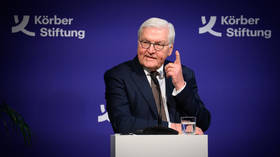‘Taliban cannot make us better Muslims than we are’
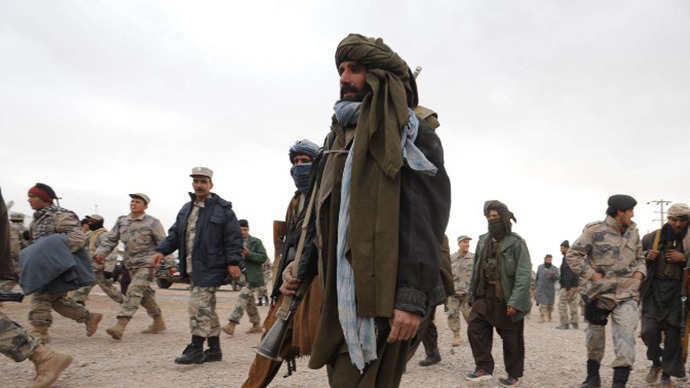
The Taliban might return to the political life in Afghanistan once NATO troops leave the country in 2014. But the old Taliban and the old agenda will not be acceptable to the Afghan people, a former Afghan MP and political analyst Daoud Sultanzoy told RT.
NATO chief Anders Fogh Rasmussen has called on the Afghan government to ensure free and fair presidential elections in 2014 after reports of fraud marred the 2009 poll.
The credibility of the vote is seen as crucial to avoid an
escalation of violence as NATO combat troops withdraw next year
leaving Afghan soldiers and police to tackle the Taliban
insurgency.
The Taliban has hinted it may form a political party and contest
the presidential election. By all accounts it has a solid chance of
winning.
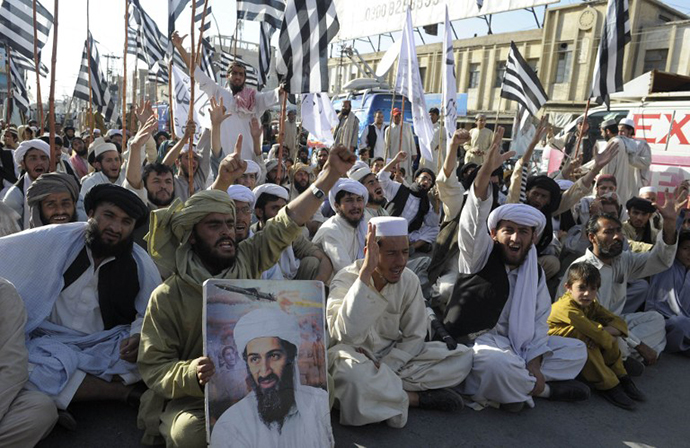
According to data from the Carnegie Endowment most of the regions in the country are either poised for a Taliban comeback, or have areas already under their control.
Former Afghan MP and political analyst Daoud Sultanzoy believes it is time the Taliban show their true face, and present a new agenda to the Afghan people.
RT:You know the fragmented political landscape of Afghanistan. What do you make of the Taliban's chances?
DS: It’s a very interesting situation. It’s not Afghanistan of the 1990s - a lot has changed. But at the same time the western world plundered their chances and we did the same. So people are confused. They are not fully supporting the Taliban agenda they were proposing earlier. It’s now up to the Taliban to show their real face, not the face that is pushed by the British and Pakistani intelligence. […] I hope now they will show their true face and their true agenda.
RT:What do you think is the Taliban’s true face now? Running a country is different to running an insurgency. The Taliban has lost many of its leaders since it last ruled. Can it still govern do you think?
DS: You know, every paramilitary group looks larger when they are on the battlefield fighting a guerilla war. When they come to the political front the proof is there. These people have to present an agenda to the people of Afghanistan and present a team. The old Taliban and the old agenda will not be acceptable to the Afghan people.
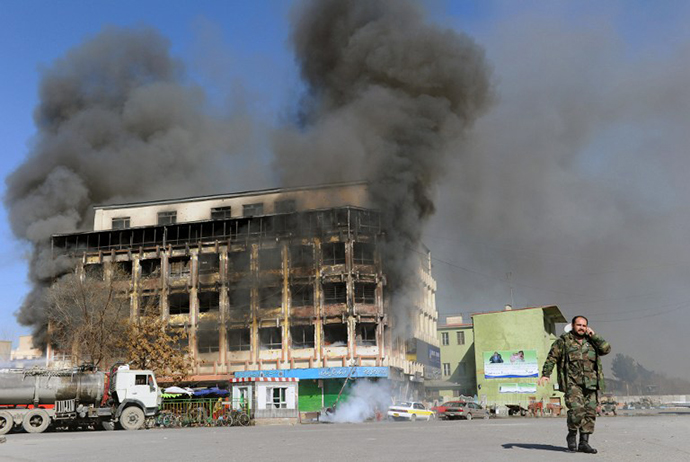
RT:America and its allies have spent more than a decade trying to remove the Taliban. Could they afford now to allow the Taliban a chance to retake power, legitimately or otherwise?
DS: I think the West is confused. They are looking for a very speedy exit. I’m afraid they will do whatever is possible and convenient to put up a very tenuous formula and a very temporary fix and then leave. Then things will go back to where it started. That’s the problem. The region has to realize that we have to find sustainable fixes for this problem, not temporary face-saving things for NATO to go away and leave a big problem for Afghanistan and its neighbors.
RT:If the Taliban were to come back into a leadership role in the country, do you think they would be imposing the kind of dictatorship that was there before the US invasion or do you think it would actually have a legitimate role to play in some kind of a democracy?
DS: This is the biggest question now. When I said the true face that was what I meant. They have to come and spell out their agenda. So far it’s been the old system – they want to create an imarat in Afghanistan not the Republic of Afghanistan. So far they haven’t changed their tone. Unless they do it the people of Afghanistan would not be supporting the Taliban that want to reverse things back to the Stone Age. We cannot afford that. Afghanistan has to live in this world, in this neighborhood. Afghanistan is an Islamic country and the Taliban cannot make us better Muslims than we are.
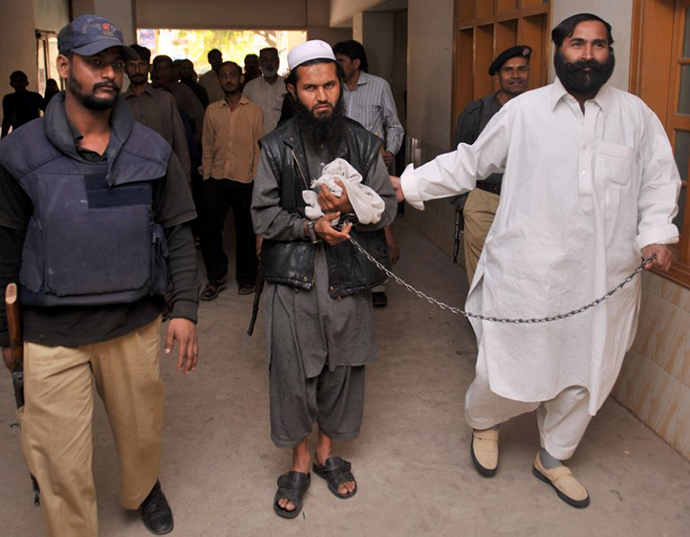
RT:Could an elected Taliban save face for the West's battered military?
DS: This is what worries the people in Afghanistan. Maybe the West wants to come up with a quick fix, to bring a face-saving situation when the Taliban wins the election and then they will wash their hands and leave a mess in this region and this country.
RT:Many Afghans are weary of their government. How important might the protest vote be?
DS: In that sort of situation the Taliban, had they been smart, would have scored big at the political front. But they don’t have a political agenda that’s why they are all sort of fumbling. But I think the Taliban can take advantage of this void and fill this vacuum, but they have to come up with a winnable strategy to convince the people of Afghanistan that they mean business and that they are prepared for the new Afghanistan, not the old one.
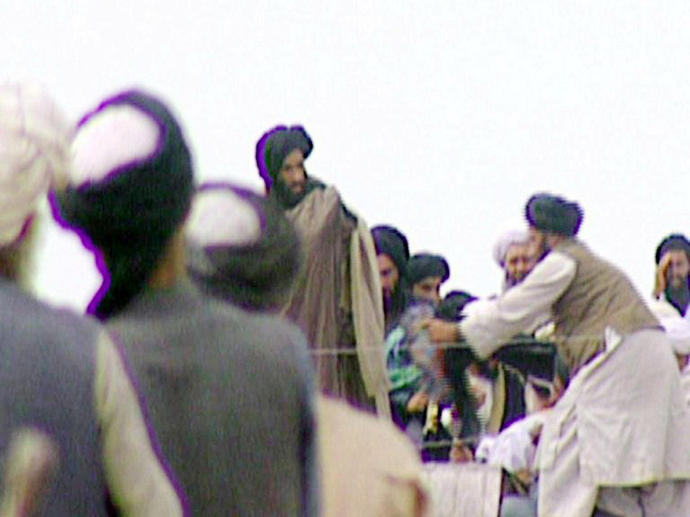
The statements, views and opinions expressed in this column are solely those of the author and do not necessarily represent those of RT.


